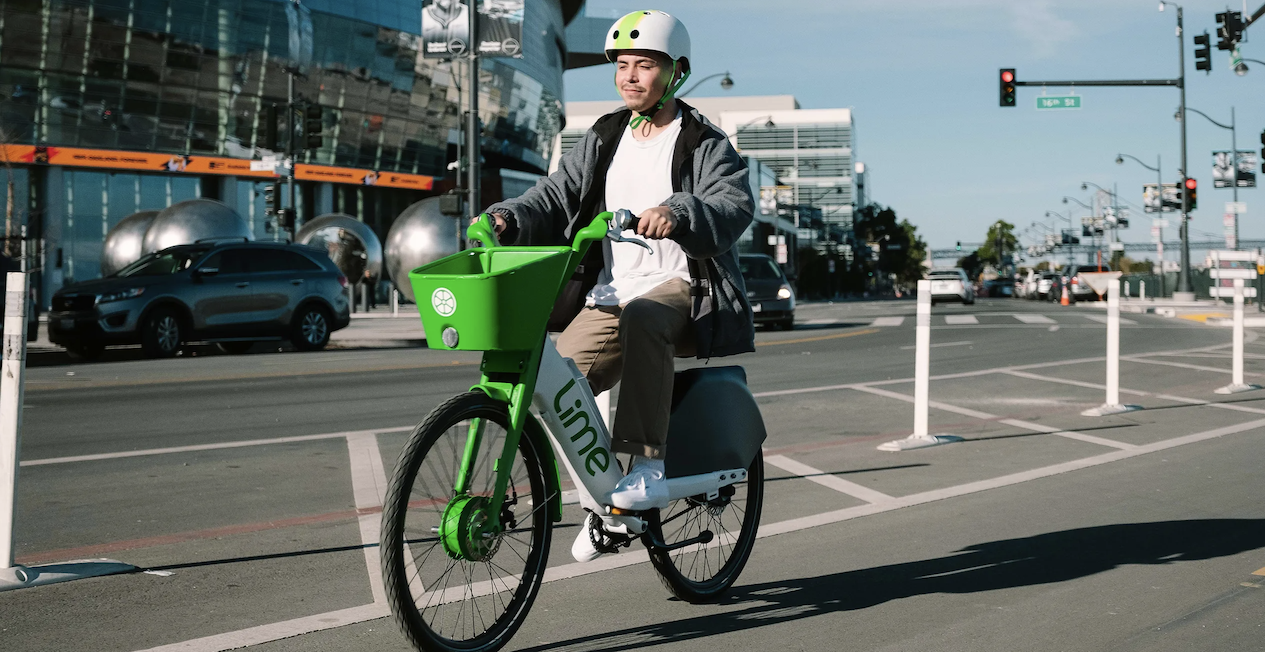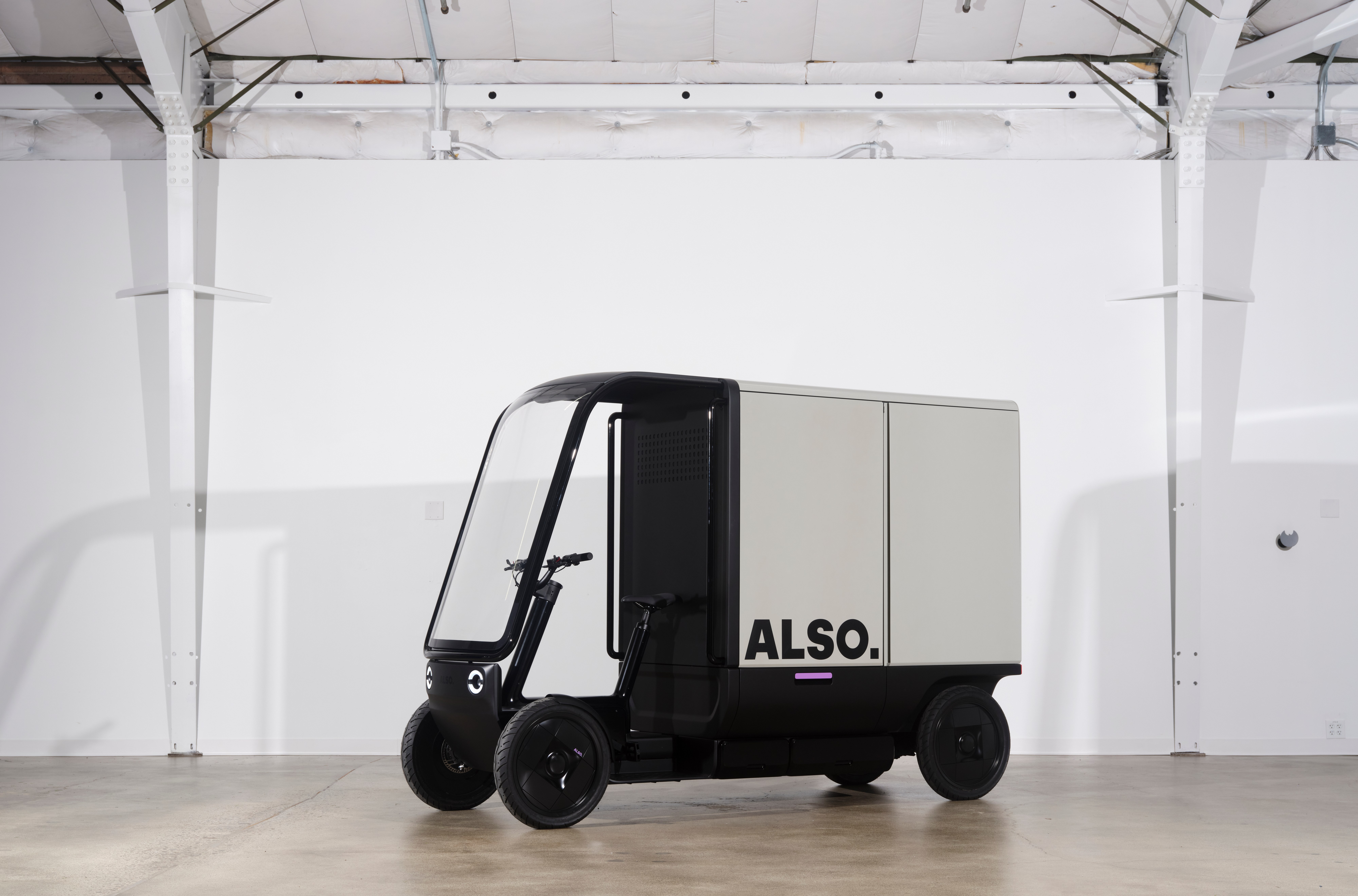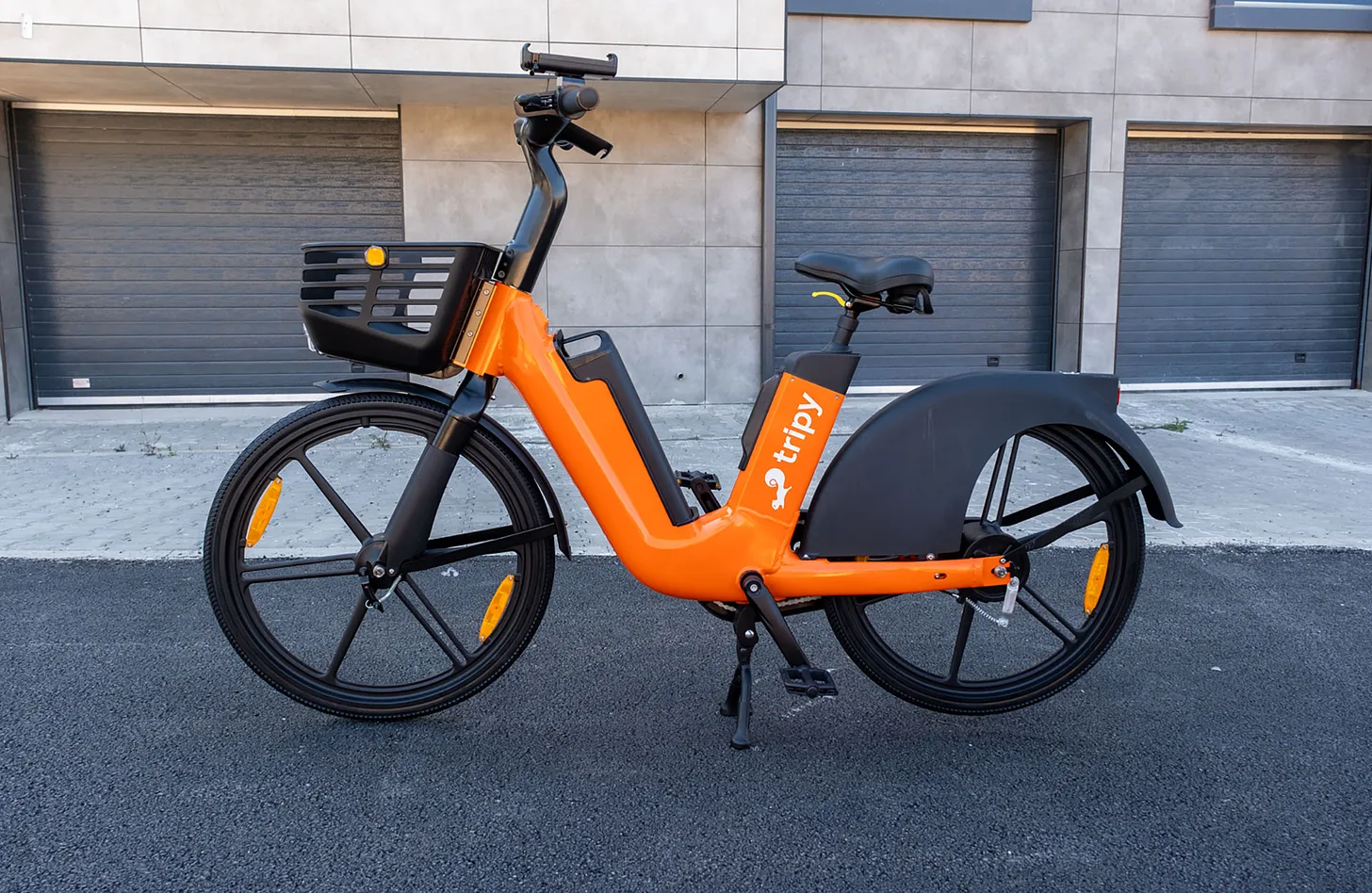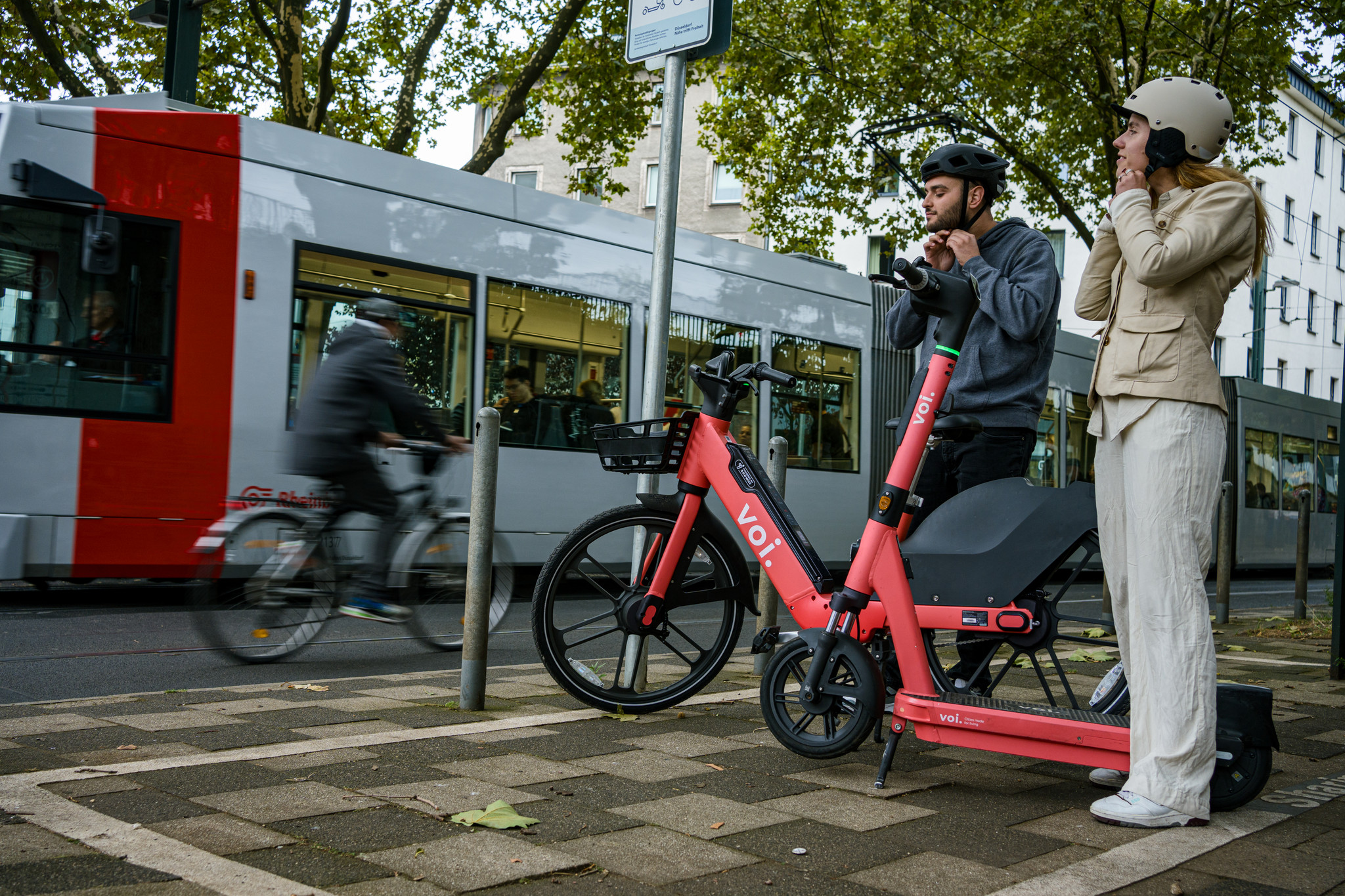You bring the ride, we bring the rundown!
Micromobility’s weekly newsletter is your pit stop for all the latest industry twists, turns, and takeovers.
Got Your Micromobility Moment To Share? Email: press@micromobility.io
Hooked but not subscribed? 👀 Now’s the time. You’ll thank yourself later.

🚨 Announcing Micromobility America 2026 🚨
The movement is back and bigger than ever.
We’re thrilled to bring Micromobility America 2026 to the iconic Palace of Fine Arts in San Francisco for two electrifying days of innovation, test rides, big ideas, and bold visions for the future of urban transportation.
Join the best of global leaders, founders, investors, policymakers, and mobility enthusiasts as we explore what’s next in:
🚴♂️ E-bikes, scooters, and light EVs
🔋 Battery tech & charging infrastructure
🌆 Smart cities and future streets
📈 Investments, startups & global trends
Expect live demos, hands-on test tracks, keynote sessions, exclusive product launches, and a community that’s changing how the world moves - one ride at a time.
📅 Save the Date: January 14 - 15, 2026
📍 Venue: Palace of Fine Arts, San Francisco, CA
🎟 Super Early Bird Tickets - Just $249
Limited quantity available - prices rise once these sell out.
🏢 Want to exhibit? Get in touch
🎤 Want to speak? Apply here
What You Need to Know Today
The Difficulty of Creating Good Tier-1 City Regulations for Micromobility
How do world-leading cities balance safety, accessibility, and innovation when regulating shared e-scooters, e-bikes, and other micromobility services? In this panel from Micromobility Europe 2025, policymakers from Brussels, Oslo, and London unpack what it takes to design fair, effective Tier-1 city regulations for e-scooters, e-bikes, and more.
Panelists:
Martin Lefrancq, New Mobility Policy Advisor, Brussels Mobility
Jonas André Johannessen, Micromobility Advisor, City of Oslo
Teddy Howard, Performance Manager, Transport for London
Moderator:
Lars Christian Grødem-Olsen, Managing Director, Movability
North America Shared Micromobility Hit Peak Ridership
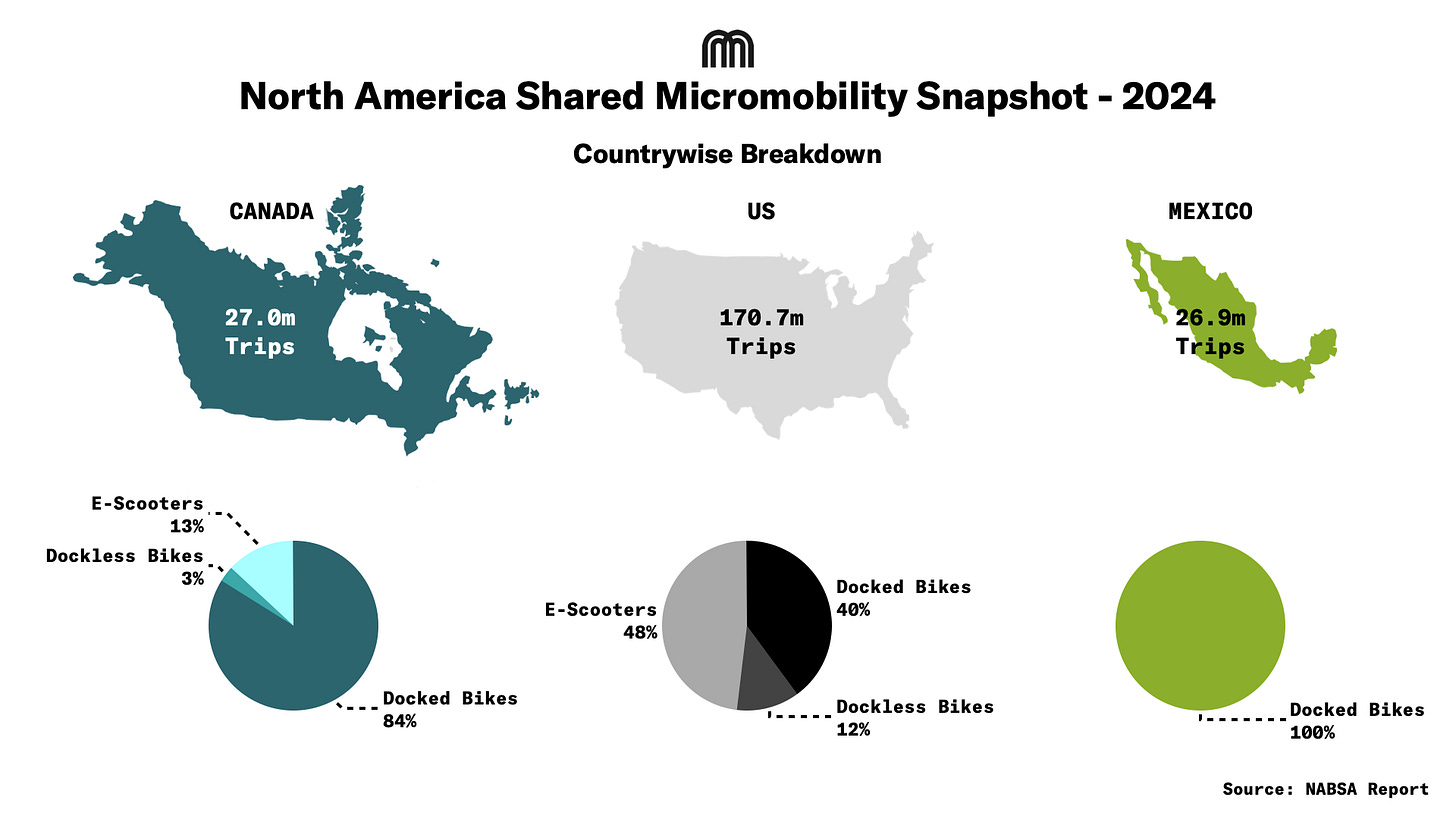
Shared micromobility ridership in North America reached a record 225m trips in 2024, marking a second consecutive year of growth with a 31% increase from 2023. Bikes dominated the modal split, accounting for 62% of trips (e-bikes and pedal bikes), while e-scooters comprised 38%. Electrification expanded significantly, with 79% of systems offering electric vehicles and 66% of all trips taken on e-devices. The sector also demonstrated strong integration with public transit, as 70% of riders used micromobility to connect to other transport modes. Shared bikes and scooters offset 46m kilograms of CO₂ in 2024 by replacing car trips.
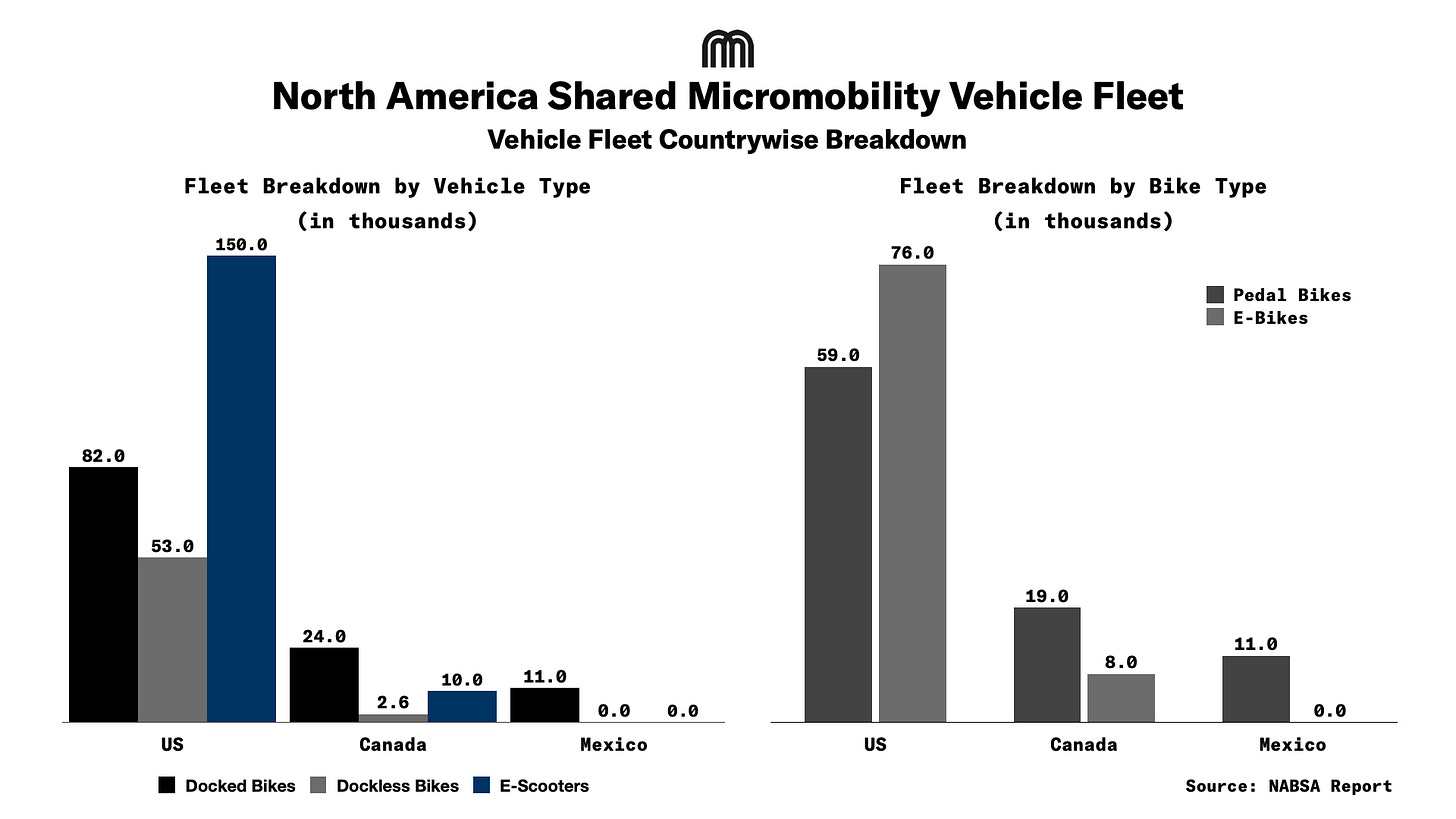
Key Highlights:
- Geographic Reach: 415 cities offered shared micromobility systems.
- Fleet Size: 333k deployed vehicles (+19% from 2023).
- E-bike Surge: 64m e-bike trips (all-time high).
- Transit Links: 22% of riders connect to transit weekly.
Cambridge Crackdown on Illegal E-Bikes and E-Scooters
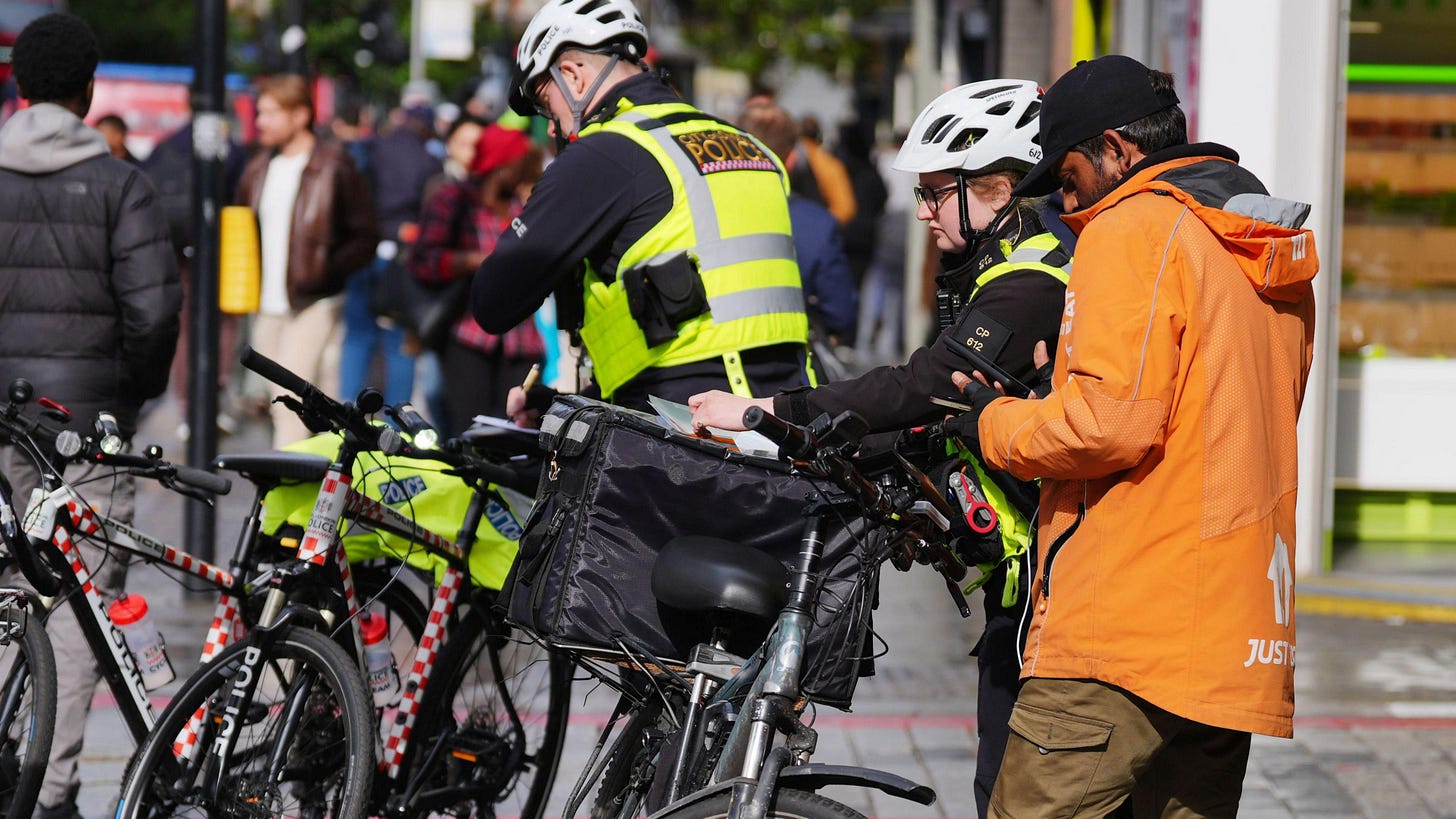
Cambridgeshire Police seized 94 non-compliant e-scooters and e-bikes during a three-day operation, responding to public safety concerns over reckless riding. The crackdown targeted privately owned e-scooters (illegal on UK public roads outside government trials) and modified e-bikes, including delivery vehicles, that violated legal standards (e.g., exceeding 250W power or 15.5 mph assisted speed). Police shifted from education to enforcement, collaborating with bike technicians to identify illegal modifications and immigration officials to verify riders’ work status.
Queenstown Rejects E-Scooter Expansion
In New Zealand, Queenstown’s council has rejected expanding e-scooter operator Beam’s access to public land after a 27-month trial. The council opted to keep operations limited to private parking sites. Council staff cited insufficient demand to support public-land expansion. Only one councillor opposed the decision, arguing it missed a chance to boost active transport and bus connectivity via "first and last mile links." Over the past two years, Beam riders in Queenstown have covered more than 125k km. The service has parking stations at 13 privately-owned sites, yet about 14% of trips ended on public land, resulting in over 4k riders receiving a $5 fine.
Cleveland Expands Mobility Hubs
The City of Cleveland, in partnership with Cuyahoga County, is installing over 70 shared mobility hubs this spring and summer to better organize e-scooters and e-bikes. Veo and Bird are the private shared micromobility operators in the city. E-scooters are available daily from 3 a.m. to midnight, while e-bikes are available 24/7.
Cambridge Ends E-Scooter Trial
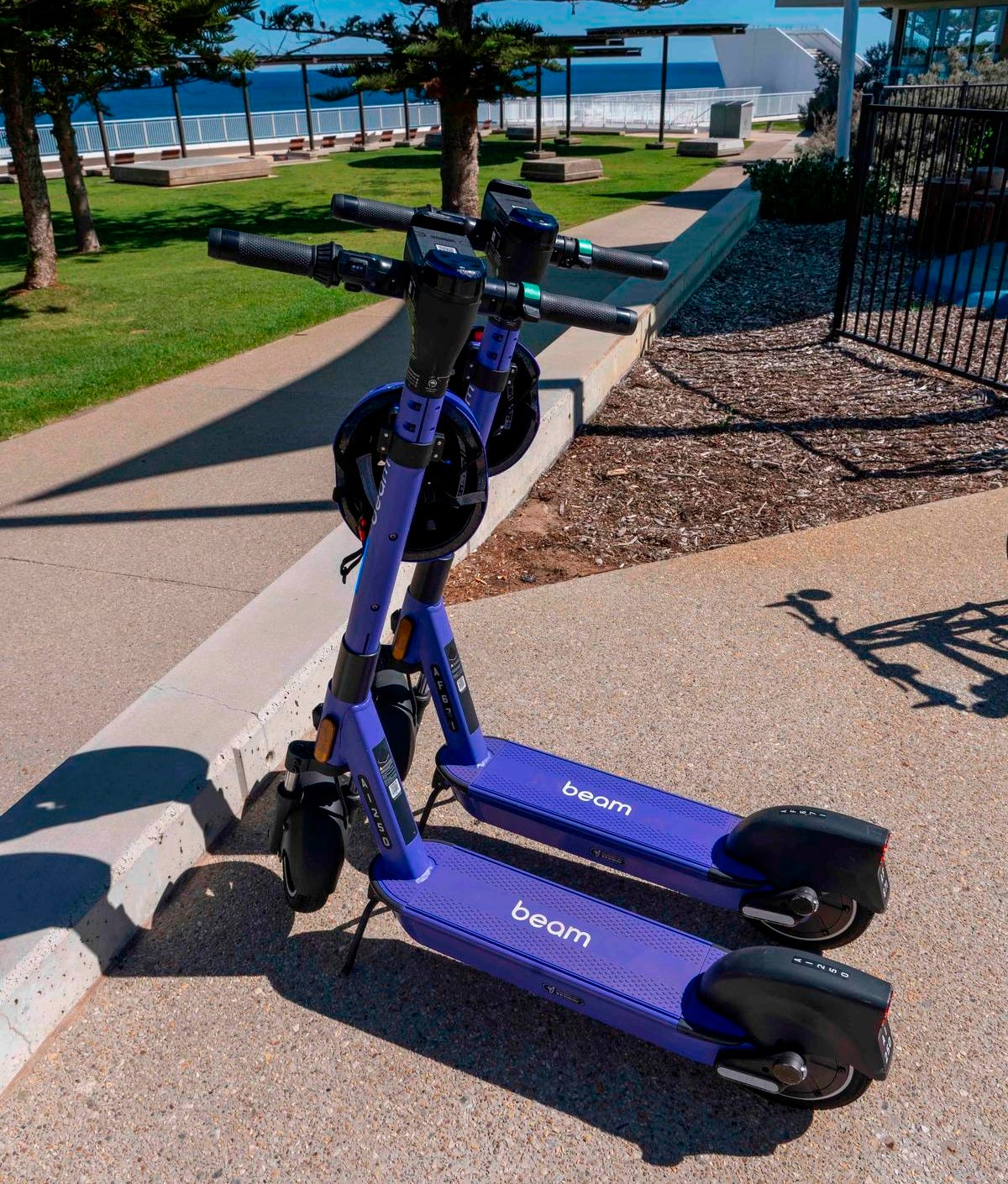
In Australia, the Town of Cambridge has removed shared e-scooter services from popular coastal areas, including City Beach, pending the outcome of a parliamentary inquiry into e-scooters. Councillors opted not to renew their contract with BeamMobility following a fatal e-scooter crash in Perth’s CBD earlier this year. The 12-month trial, featuring about 170 Beam scooters, recorded over 3k rides. Cambridge had shared services with the City of Stirling until mid-July, while Perth and Vincent also ended e-scooter agreements after the incident.
Prairie Village Shops Ban E-Scooters and E-Bikes
The Shops of Prairie Village has banned e-scooters and e-bikes from its property, including parking lots and sidewalks, following resident safety concerns. The city council recently approved safety measures such as mandatory helmets for minors, a minimum age of 16 for e-bike riders on roads, and restrictions on reckless riding and multiple passengers.
Shared E-Scooters Back in Järfälla After 5 Years
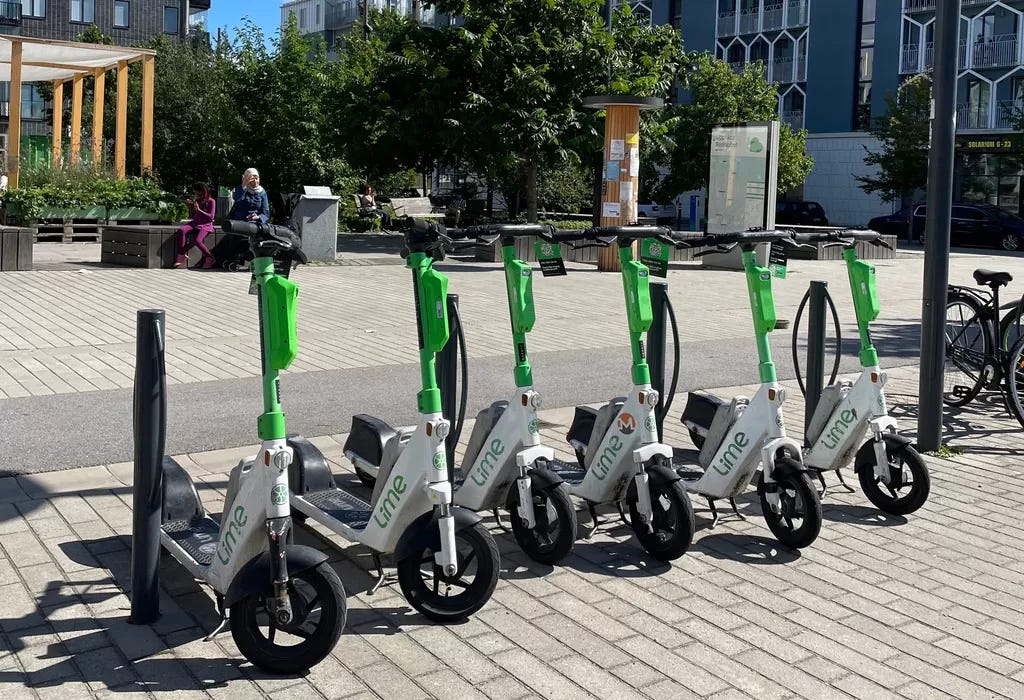
Rental e-scooters are back in Järfälla for the first time in over five years, launching a pilot project that runs until November 16. The scheme will be operated by Lime and will be available in Jakobsberg, Barkarbystaden, and Viksjö. Voi had previously served Barkarbystaden but ended operations in 2020.
UK Considers Indoor E-Bike Charging Ban
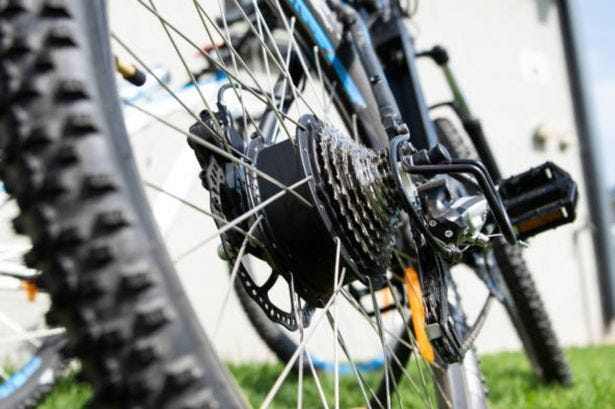
The UK government is under pressure to ban indoor e-bike charging following fatal fire incidents, including a 2023 Bradford blaze caused by a converted e-bike battery. A coroner’s report has urged regulation, with the Department for Business and Trade given until 25 September to respond.
Victoria's Proposed E-Bike Ban Faces Opposition
The Surf Coast Environment Group (SCEG) has joined other advocacy groups in opposing Victoria’s plan to ban non-foldable e-bikes and e-scooters from trains and coaches, citing fire risks from lithium-ion batteries. The group argues the ban would undermine integrated transport networks and disproportionately affect rural commuters who rely on e-bike/train combinations to reach areas with limited bus services. SCEG’s spokesperson noted that most users own compliant, well-maintained bikes and warned that the policy would harm cycling tourism, a key economic driver in the region, while increasing car dependency. Instead of a ban, SCEG is urging the government to enforce stricter safety standards for e-bike imports and sales. Public consultation on the proposal closes August 18.
Monaco Updates Micromobility Laws
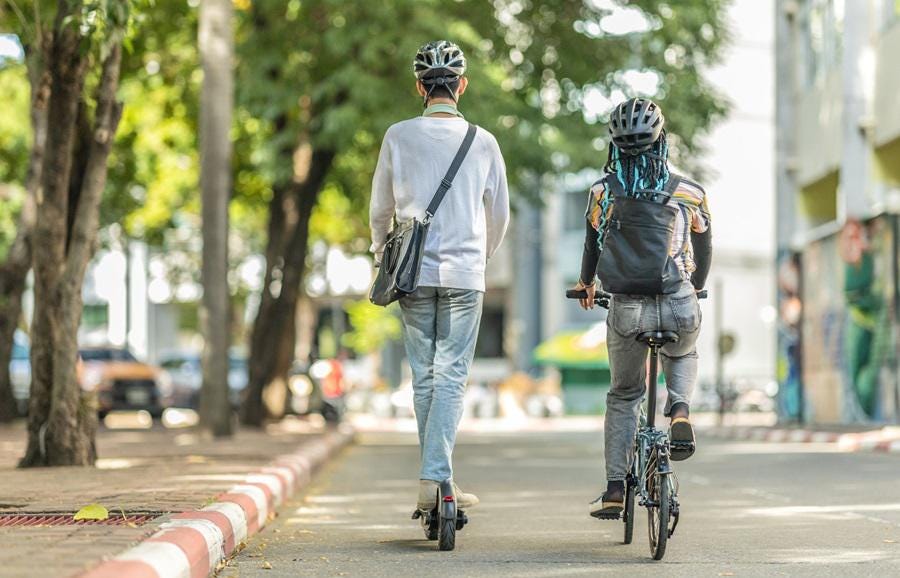
On August 5th, Monaco introduced stricter regulations to improve safety for young riders of electric scooters and e-bikes. The rules now ban children under 14 from riding any micromobility vehicle. Riders aged 14 and older must hold a road safety certificate (ASSR) or AM license, and all e-scooter users, as well as e-bike riders under 18, are required to wear helmets.
Throwback Ride Review Episode of Okai’s LyteCycle
Got your micromobility moment to share? Email us at press@micromobility.io
Loving the vibe? Hop on and ride with us! Subscribe!
Twitter | YouTube | LinkedIn | Instagram | Blog | Podcast

.svg)
%2Bcopy.jpeg)


.svg)


